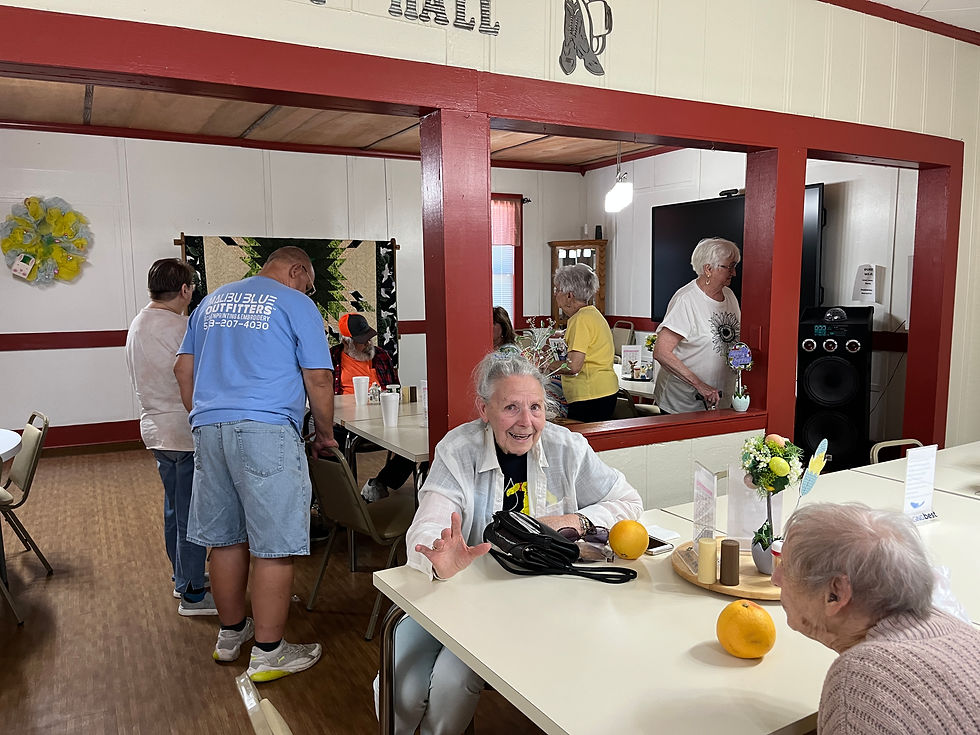Demanding Better Healthcare Access in Rural Missouri: The Loss of Rural Medical Services
- hallmark4mohouse
- Oct 18
- 3 min read
Access to healthcare is a fundamental right, yet for many residents in rural Missouri, this right remains unfulfilled. Rural communities face unique challenges that impact their access to healthcare, including geographic isolation, limited resources, and a shortage of qualified healthcare professionals. This blog post will explore the vital role of rural medical services in improving healthcare access in these areas..

Understanding the Landscape of Rural Healthcare
Rural Missouri is marked by expansive landscapes and low population density, leading to significant challenges in accessing healthcare. Many residents live more than 30 miles from the nearest hospital or clinic, complicating their ability to receive medical care. According to data from the Missouri Department of Health, there is an increase in mortality rates, as rural residents frequently miss medical appointments due to the distances involved.
Additionally, the situation is worsened by a substantial shortage of healthcare providers. Consequently, instead of receiving timely medical attention, many individuals rely on emergency services for conditions that could be managed with regular check-ups. This dependence places additional strain on communities already facing demands from emergency to recovery care.
The Importance of Rural Medical Services
Rural medical services serve as a vital link between healthcare providers and the communities they serve.
Primary Care Provider Shortage
Primary care often serves as the initial point of contact for individuals seeking medical attention. It is standard practice to provide essential services such as routine check-ups, vaccinations, and referrals for chronic disease management. Distance poses a significant challenge, as travel and financial constraints frequently delay treatment, particularly for vulnerable populations. Investing in the local provision of these fundamental medical services in rural areas can significantly reduce the need for residents to travel long distances for basic healthcare.
Telehealth Services Expires 09/30/2025
Telehealth has transformed rural healthcare. With advancements in digital communication, patients had the opportunity to consult healthcare providers from home. This includes virtual consultations, remote monitoring, and mental health support, making healthcare more accessible than before.
Addressing Health Disparities
Rural medical services require more than just the provision of healthcare; they must also address health disparities. Many residents in rural areas experience higher rates of chronic diseases, mental health needs, and heart disease, often as a result of agricultural or military service backgrounds.
Emphasizing preventative measures and comprehensive health education can empower individuals in these communities. Initiatives such as community health fairs and wellness programs can enhance awareness of healthy lifestyle choices and disease prevention. Offering education on nutrition, exercise, and regular health screenings can result in substantial improvements in the overall health of the community.
Collaborations and Partnerships
Enhancing healthcare access in rural Missouri is largely dependent on the collaboration of various stakeholders. Local governments, healthcare providers, and community organizations must cooperate to understand the unique needs of their communities and devise targeted solutions.
It is essential to fund and facilitate comprehensive health education programs focused on female reproductive health, including realistic family planning. These collaborations not only optimize resources but also establish a more robust healthcare system that effectively serves rural populations.
.
The Future of Rural Healthcare
Continued advocacy for policy reforms that bolster rural healthcare is essential. Engaging the community in these initiatives ensures that all residents have access to necessary medical services. Ongoing involvement helps maintain attention on vital healthcare requirements.
A Path Forward for Rural Health
Improving healthcare access in rural Missouri necessitates a comprehensive, community-focused strategy. Rural medical services play a vital role in delivering essential care and support to underserved populations. The communities around Fort Leonard Wood primarily consist of aging farmers who have served. Meeting their needs will effectively address the health requirements of the broader community.
It is crucial to acknowledge the significance of these services and back initiatives aimed at enhancing health outcomes. By collaborating, we can build a healthier future for rural Missouri.

